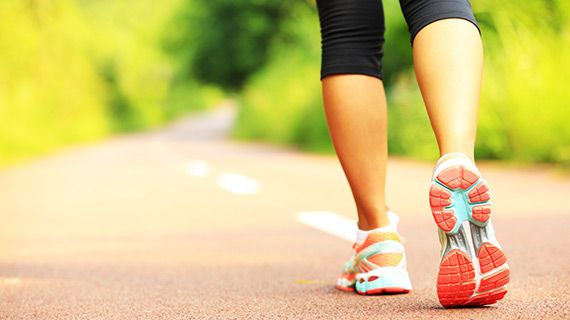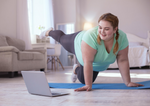Finding the time to exercise - does it have to be an uphill battle?
by Jo Campbell, Media and Public Relations Coordinator
- September 5, 2018
- Leave a comment
- Families
- Physical activity
- Top Tips
- Cancer
- Wellness
- Personal Stories
- Workplace
- Women's Health
- Mental Health
Being time poor is a major barrier to exercising for many women across the nation. So, we’ve asked one of our experts for some simple steps women can take to turn that mountain into a molehill.
The research
New research has shown Western Australian women are least likely to get enough physical activity with a lack of time being the main culprit.
National not-for-profit, Jean Hailes for Women's Health, has this week released the findings of its 2018 Women’s Health Survey. The research reveals the health needs and behaviours of more than 15,000 women aged 18 to over 80 across Australia. The majority of women surveyed were married with children and also had a full-time or part-time job.
WA women were least likely in comparison to women in other states to get the recommended minimum amount of exercise with 35.1 percent saying they were not able to get two hours of moderate physical activity a week. Overall, 29.7 percent of women surveyed from across Australia said they weren’t active enough.
So, what to do?
Cancer Council WA’s LiveLighter nutritionist Jenny Atkins is well placed to speak on the research, being a mum of a nine year old daughter and also having a full-time job.
“Although there are barriers to finding time to exercise, small steps can make a big difference to women’s health,” Ms Atkins said.
“It might seem hard to fit in physical activity when you’re juggling a job with family commitments, but there are some easy ways to incorporate the exercise you need into your everyday routine.
“Try getting off public transport a few stops earlier and walk, take the stairs instead of the lift or, instead of sitting to spectate at your kids sporting activity, do a lap around the court. By killing two birds with one stone you’ll find there’s plenty of ways to be more active.”

The benefits of moving more
There are many short and long term benefits to getting the recommended weekly exercise, including:
- increased energy levels
- decreased feelings of anxiety
- more motivation
- better quality of sleep
- more opportunity for social interaction
- greater flexibility and balance
- more muscle strength and function
- less risk of chronic diseases such as cancer, heart disease and diabetes
- positive role modelling to your kids ensuring their future good health
Go to our top tips page for expert, fact-based tips and advice on how to improve their overall health.







